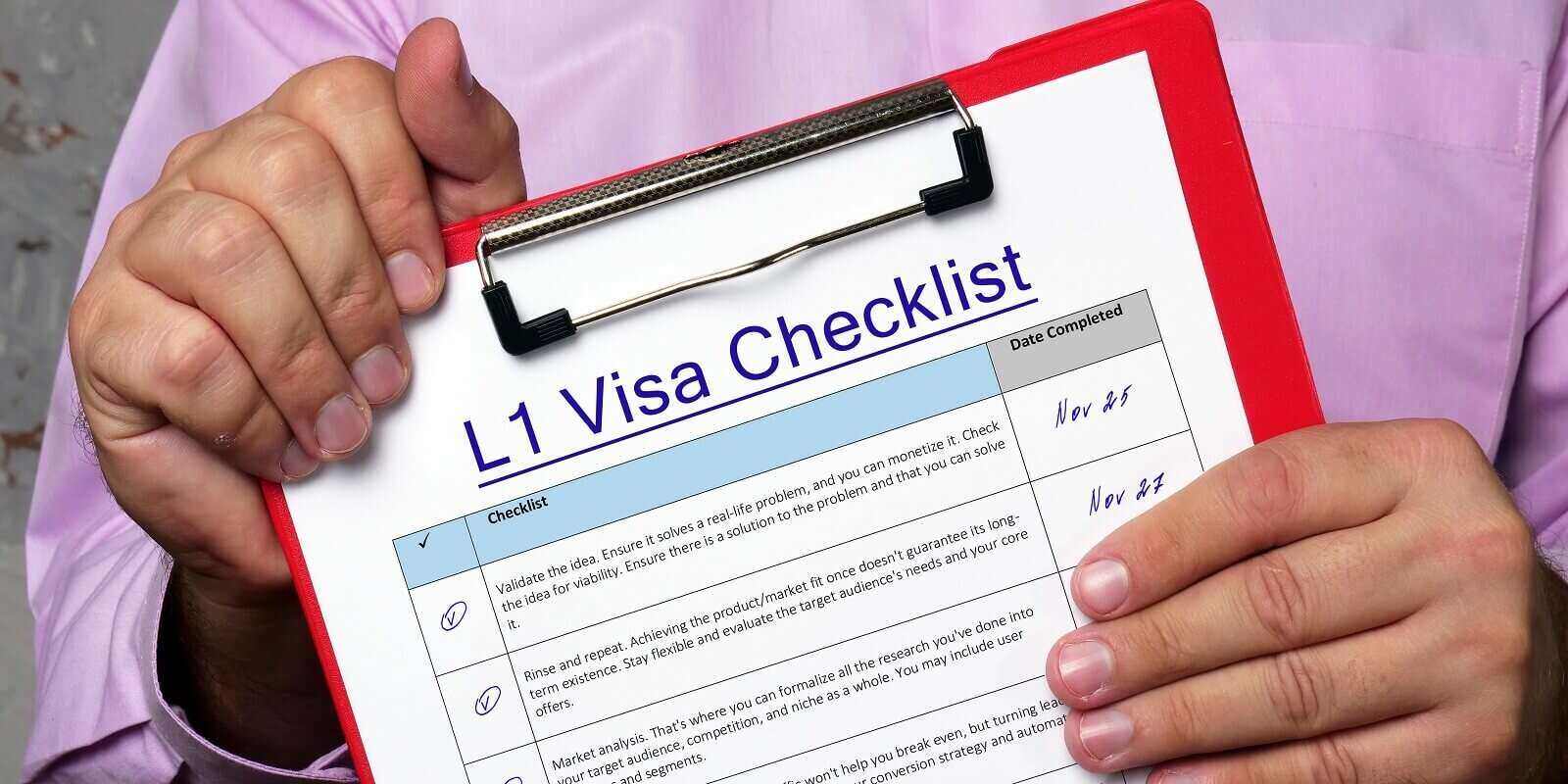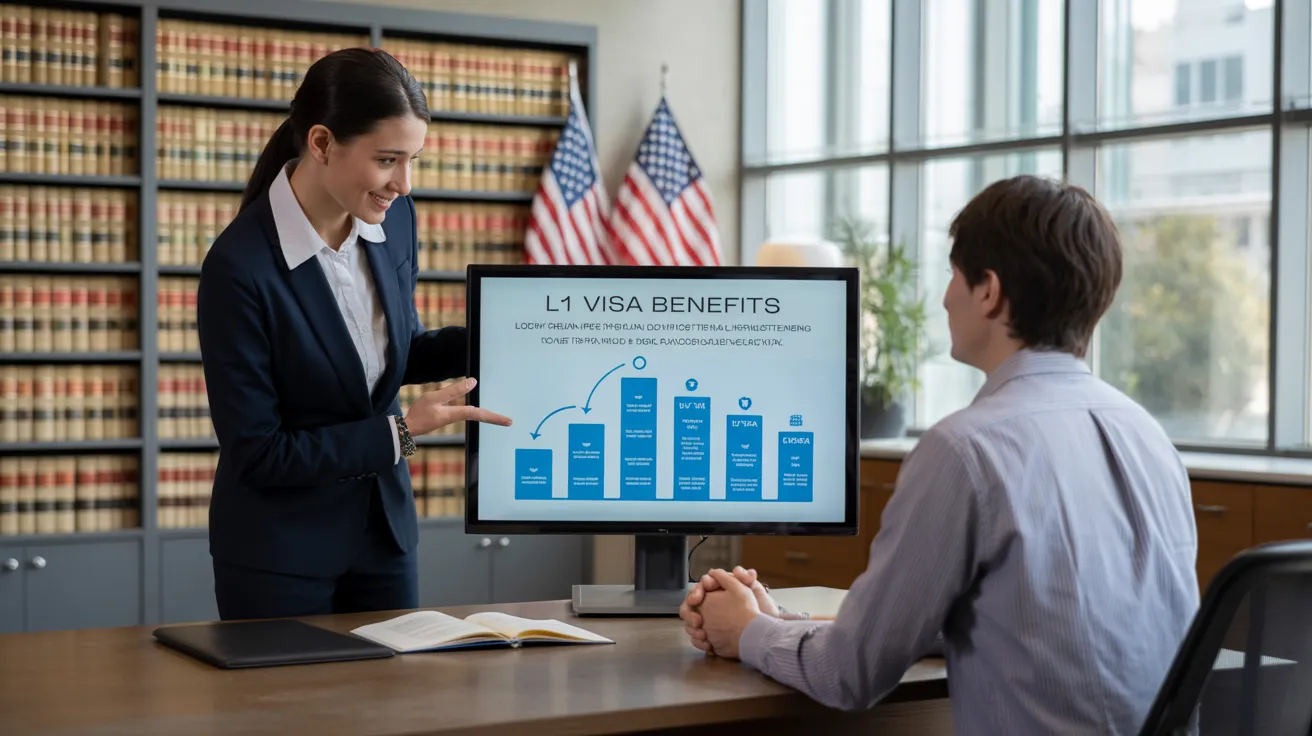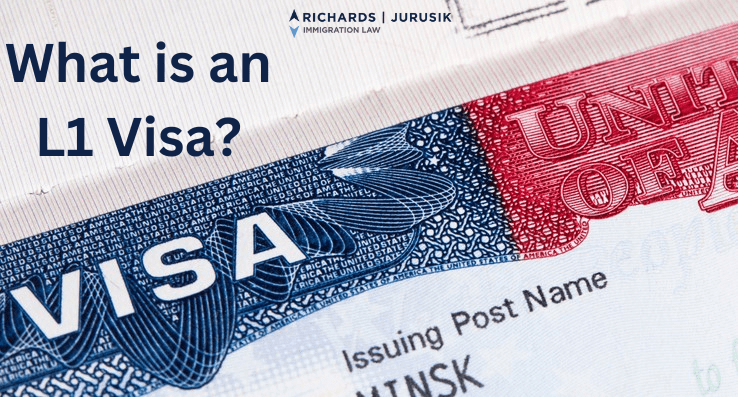Start L1 Visa Today
Wiki Article
Everything You Need to Find Out About the L1 Visa: Advantages, Demands, and A lot more
The L1 Visa offers as a vital tool for international firms seeking to transfer workers to the USA, promoting both functional performance and the transfer of specialized expertise. With distinct classifications for execs and specialized specialists, this visa offers various advantages, including potential pathways to long-term residency. Recognizing the qualification needs and application procedure is crucial for a successful shift. As we examine the intricacies of the L1 Visa, it ends up being clear that steering its complexities is critical for organizations intending to utilize international skill efficiently. What difficulties might you experience along the road?Review of the L1 Visa

Types of L1 Visas

Several kinds of L1 visas accommodate the diverse demands of international business aiming to move staff members to the United States. Both main categories of L1 visas are L1A and L1B, each developed for certain roles and duties within an organization. L1 Visa.The L1A visa is intended for managers and execs. This category permits business to transfer people that hold supervisory or executive settings, allowing them to manage operations in the U.S. This visa is valid for a preliminary duration of up to three years, with the opportunity of extensions for an overall of approximately 7 years. The L1A visa is particularly useful for firms seeking to develop a strong leadership existence in the united state market.On the various other hand, the L1B visa is designated for staff members with specialized expertise. This consists of people who have innovative know-how in particular locations, such as exclusive innovations or distinct procedures within the company. The L1B visa is likewise legitimate for an initial three-year duration, with extensions readily available for as much as 5 years. This visa group is ideal for companies that require staff members with specialized skills to enhance their procedures and preserve an affordable edge in the U.S.Both L1A and L1B visas permit double intent, suggesting that visa holders can make an application for permanent residency while on the visa. Comprehending the differences between these 2 categories is important for organizations intending to navigate the intricacies of staff member transfers to the United States efficiently
Qualification Needs
To qualify for an L1 visa, both the employer and the employee have to meet details eligibility criteria set by united state migration authorities. The L1 visa is made for intra-company transferees, permitting multinational business to move workers to their U.S. offices.First, the company must be a qualifying company, which means it needs to have a moms and dad business, branch, subsidiary, or associate that is working both in the united state and in the foreign nation. This connection is vital for demonstrating that the worker is being moved within the exact same company structure. The employer should additionally have been doing business for a minimum of one year in both locations.Second, the staff member must have been employed by the international company for at the very least one continual year within the three years preceding the application. This work has to remain in a supervisory, exec, or specialized knowledge capability. For L1A visas, which accommodate supervisors and executives, the worker must show that they will certainly continue to run in a comparable ability in the united state For L1B visas, intended for workers with specialized knowledge, the specific should have one-of-a-kind experience that contributes significantly to the business's procedures.Application Process
Maneuvering the application procedure for an L1 visa entails a number of essential steps that need to be finished properly to guarantee a successful end result. The primary step is to determine the suitable group of the L1 visa: L1A for managers and executives, or L1B for workers with specialized expertise. This distinction is substantial, as it affects the documentation required.Once the classification is identified, the U.S. company have to file Type I-129, Application for a Nonimmigrant Worker. This kind must include detailed information regarding the company, the staff member's role, and the nature of the job to be executed in the U.S. Accompanying documentation generally includes evidence of the partnership in between the U.S. and foreign entities, evidence of the staff member's credentials, and info concerning the job offer.After entry, the united state Citizenship and Immigration Solutions (USCIS) will assess the petition. If authorized, the worker will be alerted, and they can after that request the visa at a united state consular office or consular office in their home country. This entails finishing Form DS-160, the Online Nonimmigrant Visa, and arranging an interview.During the meeting, the candidate has to present different records, consisting of the authorized Type I-129, evidence of employment, and any kind of added sustaining proof. Following the meeting, if the visa is granted, the employee will receive a visa stamp in their copyright, permitting them to get in the U.S. to help the sponsoring company. Correct prep work and thorough documents are essential to steering this process successfully.Benefits of the L1 Visa
One of the remarkable benefits of the L1 visa is its ability to help with the transfer of essential employees from worldwide offices to the USA. This visa is particularly helpful for international firms looking for to maintain consistency in operations and management throughout borders. By enabling execs, managers, and specialized employees to function in the U.S., organizations can ensure that their most vital skill is readily available to drive organization objectives.Another considerable benefit of the L1 visa is its reasonably simple application procedure contrasted to other job visas. Organizations can petition for the L1 visa without the need for a labor certification, which streamlines the employment of international employees. Moreover, the visa can be provided for a preliminary period of up to three years, with the opportunity of extensions, helping with long-lasting assignments.The L1 visa additionally gives a path to long-term residency. Employees on L1A visas (for supervisors and executives) can look for a Permit after one year, accelerating their modification to long-term status. This function is an eye-catching incentive for gifted individuals looking for stability in the U.S. workforce.Additionally, L1 visa owners can bring their immediate member of the family to the U.S. under L2 condition, allowing spouses and children to stay and research in the nation, boosting the general charm of this visa category. Overall, the L1 visa acts as a necessary device for international organizations, cultivating cross-border cooperation and ability wheelchair.Common Difficulties
While the L1 visa offers many advantages for international companies and their employees, it is not without its challenges. One noteworthy hurdle is the rigorous documents and eligibility requirements enforced by the united state Citizenship and Migration Provider (USCIS) Firms must supply detailed proof of the foreign employee's qualifications, the nature of business, and the qualifying relationship in between the united state and foreign entities. This process can be lengthy and may call for lawful competence to browse successfully.Another challenge is the capacity for scrutiny during the request procedure. USCIS policemans may examine the legitimacy of the organization operations or the staff member's function within the organization. This analysis can cause delays or perhaps denials of the visa, which can significantly impact the company's operational plans and the staff member's job trajectory.Furthermore, the L1 visa is connected to the sponsoring employer, which means that job adjustments can complicate the visa standing. If an L1 visa owner wishes to switch companies, they must frequently go after a different visa group, which can include complexity to their migration journey.Lastly, preserving compliance with L1 visa laws is vital. Employers have to assure that their staff member's duty straightens with the initial application and that business continues to fulfill the eligibility needs. Failure to do so can lead to cancellation of the visa, impacting both the staff member and the company. These obstacles necessitate detailed preparation and continuous administration to ensure a successful L1 visa experience.Tips for Success
To successfully navigate the L1 visa procedure, precise prep work is critical. Start by completely understanding the particular needs for the L1 visa category you are applying for, whether L1A for supervisors and execs or L1B for employees with specialized expertise. Gather all needed documentation early while doing so, including evidence of your employment history, business framework, and the nature of the organization operations.Engage legal guidance experienced in immigration legislation to guide you through the ins and outs of the application. An attorney can help guarantee that your application is total, precise, and engaging. They can likewise aid in getting ready for possible requests for evidence (RFEs) by proactively dealing with locations that might elevate questions.Additionally, keep clear communication with your employer, who must provide crucial support for your application. L1 Visa Lawyer. Verify that they understand their responsibilities, consisting of filing the required requests and offering documents that confirms your role in the organization.Prepare for the visa meeting by exercising response to common questions concerning your expert background and the nature of your employment. Demonstrating self-confidence and clearness can considerably influence the end result of your applicationRegularly Asked Concerns
Can Household Members Accompany L1 Visa Holders?
Yes, relative can go along with L1 visa owners. Spouses and single youngsters under 21 years old are qualified for L2 visas, which enable them to live and examine in the United States throughout the L1 holder's stay.For How Long Can L1 Visa Owners Remain In the U.S.?
L1 visa owners can originally remain in the U.S. for approximately 3 years (L1 Visa). This period might be expanded, permitting a maximum keep of seven years for L1A visa holders and five years for L1B visa ownersIs the L1 Visa a Twin Intent Visa?

Can L1 Visa Holders Request a Permit?
Yes, L1 visa holders can look for an eco-friendly card - L1 Visa Qualifications. The L1 visa sustains dual intent, permitting holders to seek long-term residency while keeping their non-immigrant condition, facilitating a smoother transition to a permitWhat Takes place if an L1 Visa Is Refuted?
If an L1 visa is refuted, the applicant may get a notification laying out the reasons for denial. L1 Visa. They can appeal the choice, reapply, or explore alternate visa choices depending upon their circumstances and qualificationsVerdict
In summary, the L1 Visa serves as a necessary tool for multinational business seeking to transfer staff members to the United States. Comprehending the differences in between L1A and L1B classifications, along with the eligibility click here needs and application processes, is important for successful navigation of this non-immigrant category. The benefits offered, including structured applications and paths to irreversible residency, even more boost its allure. Resolving usual obstacles effectively can cause a much more positive outcome in the visa process.Report this wiki page